- Home
- John Jakes
Heaven and Hell: The North and South Trilogy Page 37
Heaven and Hell: The North and South Trilogy Read online
Page 37
About three thousand Comanches, Kiowas, Kiowa-Apaches and Arapahoes encamped within twenty miles of the treaty site. They were eager for the gifts of soap and brass bills, tin cups and iron pans, blankets and calico, as well as the weapons described to them by Murphy, the Indian superintendent, who had ranged lower Kansas ahead of the great caravan, urging the tribes to come in. The Cheyennes would not go as close as the other tribes because they had certain memories uniquely their own. Chivington. Sand Creek. The Pawnee Fork.
The peace parley began at the site not far above the demarcation line between Kansas and the Indian Territory. A special emissary rode all the way to the Cheyenne encampment to ask that they, too, meet with the white chiefs. In due course, all the elders were consulted. “What do you think, Stone Dreamer?” he was asked.
“We should go,” he said. “But not for the gifts. We should go because it is folly to wage a war that cannot be won. The white men are too many. We are too few. If we do not live in harmony with them, they will trample us to nothing.”
He hated to say such bitter words, but he believed them. A renegade whiskey peddler, Glyn, had once showed Stone Dreamer a picture of a white man’s town; it was an engraving of Fifth Avenue in New York, from Leslie’s, though Stone Dreamer didn’t know any of those specifics. He merely covered his mouth and popped his eyes at the inexpressible wonders he saw on the page.
He saw rows of solid structures he presumed were forts, lining both sides of a broad way. Along this way, scores of horse-drawn vehicles traveled in both directions, surrounded by hundreds of people on foot. This was but one tiny part of one white man’s village, the trader said, and there were hundreds of such villages.
So Stone Dreamer, who wanted to pass his final winters sensibly, at peace, spoke for accommodation. Some others, among them his friend the peace chief Black Kettle, agreed. Other war chiefs including the unquestionably brave Roman Nose did not. Nor for the most part did the younger men, especially those rising to leadership in the soldier societies. When Stone Dreamer considered the headstrong behavior of this group, he sadly concluded that age no longer generated respect, and traditional tribal discipline was breaking down. One of the most feared and admired young men, also undeniably brave but needlessly cruel in Stone Dreamer’s opinion, ranted and swore that he’d never submit to the white chiefs while he could draw breath.
These words of Man-Ready-for-War carried special weight, for it was almost certain that he would be chosen a Dog-String Wearer next spring at the annual reorganization of his society. The Dog-String was a wide hide sash, about nine feet long and decorated with paint, quills, and eagle feathers. Four Dog Society men were awarded the sash each year. Those so honored for bravery wore the sash in battle, slipping it over the head by means of a long center slit.
The bottom of the Dog-String bore either a red-painted wood peg or a shorter slit to accommodate the point of a lance. If a battle went badly, it was the privilege of the Dog-Strings to peg or pin their sashes to the ground, signaling their intent to stand and give their lives, so the others might escape. A Dog-String Wearer’s death was special, heroic, and was described in song and tale long after his bones went to dust and blew away.
Man-Ready-for-War and young men like him spoke more persuasively than old men like Stone Dreamer. So the Cheyennes remained apart in the valley of the Medicine Lodge, while other great Indian chiefs—frail Satank, who proudly wore a medal graven with the head of James Buchanan; bearlike Santana, another feared Kiowa, who favored a U.S. Artillery officer’s coat—led their deputations to the conference ground, listened to the soothing words of the white chiefs, made their marks on a treaty paper that gave away still more of their tribal land, and then, rewarded, reveled in the distribution of the trade goods and guns.
Still the Cheyennes remained apart, though contrary pressure began to grow because of the gifts. Man-Ready-for-War sneered at the idea of a birthright sold for a few bolts of cheap cloth or pistols he had heard were defective. Sadly, Stone Dreamer decided that his wish to live out his last winters peaceably was to be denied.
The shadows of October lengthened and grew cooler. Then, almost on the day when the white chiefs were to pull down their great canvas marquees and ride away, a last emissary came riding among the heavily armed Cheyennes, bringing a last plea for them to come in. Stone Dreamer argued for it almost all of one night. Finally, about four hundred who were willing to face the scorn and wrath of the rest agreed to go in, since about fifteen hundred Arapahoes were also going. Stone Dreamer took heart.
He rode to the conference ground as part of a mounted band, careful to stay near his wise and good friend Black Kettle, and away from a party of Dog Society men who decided to go at the last minute. For what purpose Stone Dreamer wasn’t sure, unless it was to replenish their arms or, more likely, make trouble. At one point some of these heavily armed Dog Soldiers rode near him, and he overheard jocular talk of a fierce demonstration for the whites.
Stone Dreamer wore his finest tribal raiment, while Black Kettle wore a long blue robe and the tall hat of a U.S. dragoon. This was not so offensive, in Stone Dreamer’s view, as the Army coats some of the Dog men wore in lieu of traditional shirts. The plundered coats bore holes torn by lead balls or lance points that had killed the original wearers. Some of the young men made it even worse by pinning on stolen medals, or hanging Christian crosses around their necks.
In the failing light, the pale and melancholy light of a dying day, the Cheyennes reached the creek and saw on the far side the marquees and Army tents, the wagons and horses and massed blue uniforms of the Commission party. The Dog Soldiers immediately began to wave lances and rifles, howl and hoot and sing. Several charged straight across the creek in a threatening way. The white-bearded chief in charge of the Commission held up his hand to signal restraint to his men. Stone Dreamer saw many Army rifles gleaming as the howling braves splashed through the creek. At the last moment they checked, and rocked with laughter at the expense of the anxious whites.
The white-bearded general lowered his arm. There beneath the marquee, he had not changed his position even slightly during the charge. A brave warrior, Stone Dreamer decided.
After an evening’s feast the Cheyennes encamped near the much larger band of Arapahoes. In the morning the Cheyenne and Arapahoe chiefs seated themselves in a wide semicircle just in front of the Commission’s main marquee. Stone Dreamer and his fellow chiefs faced the white chiefs, who were attended by strange men scribbling on tablets, and surrounded by a much larger body of soldiers whose brass buttons winked as brightly as their carbines and revolvers.
Through an interpreter the white chiefs presented their message: a very reasonable message, Stone Dreamer thought:
“We have among us wicked men who wish to profit by the calamities of both sides, and these bad men continually seek war. We now think these bad men told wicked lies to General Hancock last spring.”
The smooth words of the white chiefs held bitter truths:
“Perhaps some of your young braves with more blood than brains will oppose your making peace with us. Such men must be cast away. Their councils are death. A war long continued will only end in the total destruction of the Indian because his numbers are less.”
Stone Dreamer remembered the picture of the white village, which to this day burned in his nightmares, and he nodded to Black Kettle, who nodded back.
The white chiefs wisely addressed the most galling issue:
“As long as the buffalo ranges on the Plains, we are willing that you should hunt him provided you keep the treaties made at the Little Arkansas. But the herds of buffalo are becoming fewer and thinner every year …”
Angered, Stone Dreamer interrupted. “I ask the white chiefs who is to blame for that? Our young men say the buffalo are now hunted for sport, not merely to sustain life. You do not need the buffalo to sustain life, as we do. What are we to do if you rob us of them?”
The white chiefs had a saddening answer:
Buffalo Chief of the Cheyennes arose with a hot reply:
“We are not farmers. We spring from the prairie. We live by it. You think that you are doing a great deal for us by giving presents, yet I say if you gave us all the goods you could give, we would still prefer our own life, to live as free as we have always done.”
And when the white chiefs raised the issue of raids on homesteads and the rail line, Little Raven of the Arapahoe was prepared.
“It is you who should instruct your young men at the forts as to their duty. They are mostly children. You must stop them from running wild. That provokes war.”
The blue-coated soldiers disliked the speech, and some made menacing motions with their weapons. The white chiefs calmed them, and as the day wore on the pugnacity of the Indians wore away, while the hunger for the gifts and guns increased. To tempt them, the white chiefs put forth their terms:
The Arapahoes and the Cheyennes must withdraw from Kansas, and settle with the other three Southern tribes on a special reserve of forty-eight thousand square miles to be set aside in the Indian Territory. On this land, with special Indian agents to mediate for them, the five tribes would live. Buildings would be put up to house a doctor, an agriculturist, a miller, a schoolteacher, a blacksmith, and any other white persons necessary for converting a race of nomads to farmers. There would be an annual dole from the White Father besides.
In return, the Indians must promise to stop their war on the wagon and rail traffic on the Santa Fe, Smoky Hill, and Platte River routes. They must promise to stay out of Kansas, although they would be permitted to hunt buffalo on open land below the Arkansas for as long as the herds lasted. When hunting, they were never to venture nearer than ten miles to any road or fort.
Again Stone Dreamer sighed. How could so few agree to such sweeping terms on behalf of so many? Many important chiefs—Tall Bull, Medicine Arrows, Big Head, Roman Nose—and hundreds of the People were not here.
Yet ultimately it was done, agreed to by a few chiefs who mingled their regret with a sad realism. They touched the pen to a document never read and translated for them.
Not all of the signers of the treaty paper were cheerful about it. Bull Bear roared. “Well, as you are so earnest, so shall I be.” Instead of merely touching the pen, he drove it down on the document so hard the point snapped.
The day-long conference was nearly over, and Stone Dreamer was starting to hear an excited buzzing about the gifts. Suddenly, the white chief Terry leaped up and pointed.
A dust trail in the west signaled a rider speeding to the encampment beside the creek. Soon they saw him. A lone man, at the gallop. Stone Dreamer’s heart fell. He recognized Man-Ready-for-War.
He came in full regalia, in one hand his eight-foot lance with its glittering head of trade steel, in the other his snake rattle with clicking antelope dewclaws. He had painted his face with red pigment mixed with buffalo fat, leaving only the long hooking scar uncolored.
While blue-garbed soldiers raised their weapons around the central marquee, Scar leaped from his pony and marched to the treaty table. Stone Dreamer clasped his hands. His hair blew like a gray curtain across his anxious eyes. The sunset wind seemed cold as deep winter.
Scar gazed with contempt at the other men from his society, who huddled together, shame-faced. Then he flung a look at the seated Cheyenne chiefs. It was clear what he thought of them.
He surveyed the spread-out parchments, the assortment of fine quills and silver inkstands. Through the interpreter, he spoke swiftly and with passion:
“This paper is the work of devils who betray the People. What good is the white man’s promise? The only promise he keeps is the promise to steal our land. And what good are the marks of toothless old weaklings such as those seated here? How can they presume to give away land the Spirit gave to all the People? They can’t, and we Dog Men won’t allow it. We will carry on the war until all of you white devils and your white women and your white infants are dead.”
The commissioners leaped up and exclaimed. Scar laughed, exuberant over the reaction. Before they could stop him, he shot the tip of his lance beneath the treaty table and heaved upward.
Parchment flew. Pens dropped. Ink spilled. Someone fired a shot, and an elderly Arapahoe cringed. Laughing heartily, Man-Ready-for-War walked back to his pony with a slow, haughty stride. He scrambled up, flung the commissioners another look scorning them for lacking the courage to retaliate, and rode away into the nimbus of light on the western hills.
Black Kettle brought both hands over his face, shamed and angry. Stone Dreamer felt tears he didn’t bother to hide. Their brother chiefs looked unhappy, anxious. One of the white chiefs, Taylor, snarled at the men scribbling on tablets.
“Strike that speech from your notes,” he told them. “Any man whose paper prints it will no longer have credentials west of the Mississippi. This is a successful conference. Report it that way.”
It was a season of changes. The Southern Cheyennes withdrew to their villages on the Cimarron, there to winter peacefully with their trade goods and guns while awaiting removal to their new reservation. Charles heard about Scar’s oration when the contingent of the Seventh returned to Fort Harker. He also heard that a mere four hundred or five hundred Cheyennes had represented three thousand members of the tribe. That almost amounted to no representation. “Well,” he said, tiny glints showing in his eyes, bright like the point of a polished knife. His mouth lifted slightly at the corners.
All the handbills for the forthcoming visit of Trump’s players showed a change. The performance at Fort Harker had been stricken out.
“I hear your lady friend’s responsible,” Barnes told Charles. “She found out the brass wouldn’t let any colored boys into the same hall with whites. Our men, y’understand. Your friend sent a letter saying that she and Trump had talked it over, and the Army at Fort Harker could go fry. You want to see her, you’ll have to traipse on over to Ellsworth.”
Just like Willa, he thought. Crusading was an unchangeable part of her nature. It was one reason, though not the main reason, that he continually warned himself to stay away from her. Then he would remember the silver-gold glint of her hair, and her vivid merry eyes, and the feel of her in his arms—
He knew he’d traipse to Ellsworth, no matter what the consequences.
_____
ST. LOUIS, MO., FRIDAY, NOV. 1
HON. O. H. BROWNING, Secretary of the Interior:
Please congratulate the President and the country upon the entire success of the Indian Peace Commission thus far. It concluded a treaty with the Cheyennes of the South on the 28th, this being the only tribe that has been at war in that quarter. More than 2,000 Cheyennes were present …
[Signed] N. G. TAYLOR
Commissioner of Indian Affairs
and President of Peace Commission
34
TRUMP’S PLAYERS PERFORMED IN Frank’s Hall, City of Kansas, then ferried over the river to repeat their show at the Leavenworth post hall the following night. The troupe consisted of Sam, Willa, Tim Trueblood, and a stout character actress, Miss Suplee. A large trunk held their few simple props and costume pieces. Willa had argued Sam out of such encumbrances as a stock of “genuine” diamond rings, the sort of trinket given away on Saturday night by many touring companies.
Brigadier Duncan attended the Shakespearean evening. He’d invited Willa to stay with Maureen until her train left for Fort Riley the next afternoon at five. “I imagine you’re anxious to see my grand-nephew,” he said. Willa said she was.
“Why, he’s grown remarkably,” she said next day. Duncan had just returned for the noon meal, instead of taking it in the officers’ mess. Little Gus kept scrambling off his chair. Duncan ordered him back, good-natured but firm about it.
“He’ll be three come the end of this year.” The brigadier spooned into the hot turtle so
up Maureen had prepared. The boy, sturdy and towheaded, jumped off his chair and seized Willa’s hand.
“She’s all thumbs,” he said to Duncan, and broke into a shrieking laugh. “All thumbs, all thumbs! Thumbs on her head, thumbs on her arms.” He was red-faced, convulsed.
“What is he talking about, Willa?”
“After you left this morning, I brought a bowl of cornmeal mush to the table. I was careless and dropped the bowl. It cracked. I was annoyed with myself and said I was all thumbs. He sees the picture in his imagination.”
“All thumbs,” Gus cried, jumping up and down until Duncan shushed him. The boy obeyed but he couldn’t be repressed for long. He tugged her hand again. “Another walk, Aunt Willa?”
She noticed Duncan’s keen look, turned pink. “After your nap, but not until.”
Maureen scooped him up and carried him to bed. His legs kicked and his arms waved in uninhibited merriment. “All thumbs!” He was giggling as the door closed.
Duncan said, “Aunt Willa.” He tilted his head with an approving smile.
“I didn’t prompt him. It was his idea.”
Over the noise of a troop of mounted men riding by on the parade ground, Duncan said, “You’d like to be more than his aunt. That would be good for him. And for his father.”
“Well—” A bit nervous about it, she shrugged. “I would. But I’m not sure how Charles would feel. He’s a wonderful man, but there’s a strange, distant streak in him.”
“The war.” Willa gazed at the brigadier, her pale eyes as quizzical as his had been a few moments ago. “The war did that to a lot of soldiers. On top of it, Charles lived through the massacre of a man who befriended him.”
“I understand. I just don’t know how long someone can use the past to excuse present behavior.”

 The Bastard
The Bastard The Furies
The Furies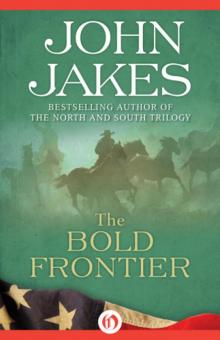 The Bold Frontier
The Bold Frontier The Americans
The Americans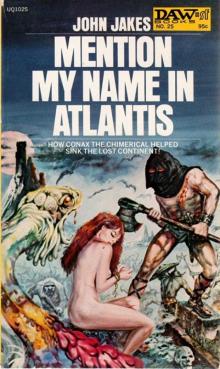 Mention My Name in Atlantis
Mention My Name in Atlantis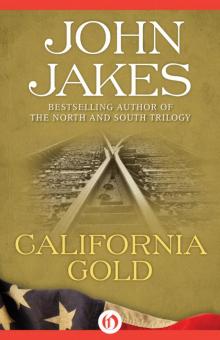 California Gold
California Gold North and South
North and South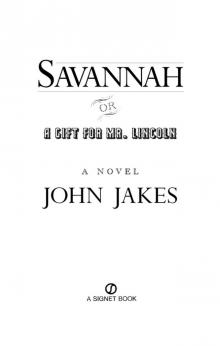 Savannah, or a Gift for Mr. Lincoln
Savannah, or a Gift for Mr. Lincoln Heaven and Hell
Heaven and Hell Homeland
Homeland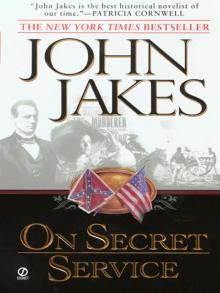 On Secret Service
On Secret Service The Lawless
The Lawless The Titans
The Titans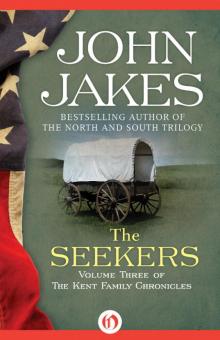 The Seekers
The Seekers Love and War
Love and War North and South: The North and South Trilogy (Book One)
North and South: The North and South Trilogy (Book One)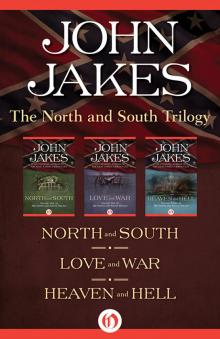 North and South Trilogy
North and South Trilogy Love and War: The North and South Trilogy
Love and War: The North and South Trilogy North and South: The North and South Trilogy
North and South: The North and South Trilogy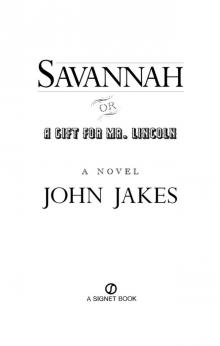 Savannah
Savannah Lawless
Lawless Conquest Of The Planet Of The Apes
Conquest Of The Planet Of The Apes Love and War: The North and South Trilogy (Book Two)
Love and War: The North and South Trilogy (Book Two)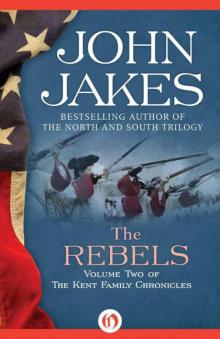 The Rebels: The Kent Family Chronicles
The Rebels: The Kent Family Chronicles Heaven and Hell: The North and South Trilogy
Heaven and Hell: The North and South Trilogy Planet of the Apes Omnibus 2
Planet of the Apes Omnibus 2 The Bastard: The Kent Family Chronicles
The Bastard: The Kent Family Chronicles Heaven and Hell: The North and South Trilogy (Book Three)
Heaven and Hell: The North and South Trilogy (Book Three)